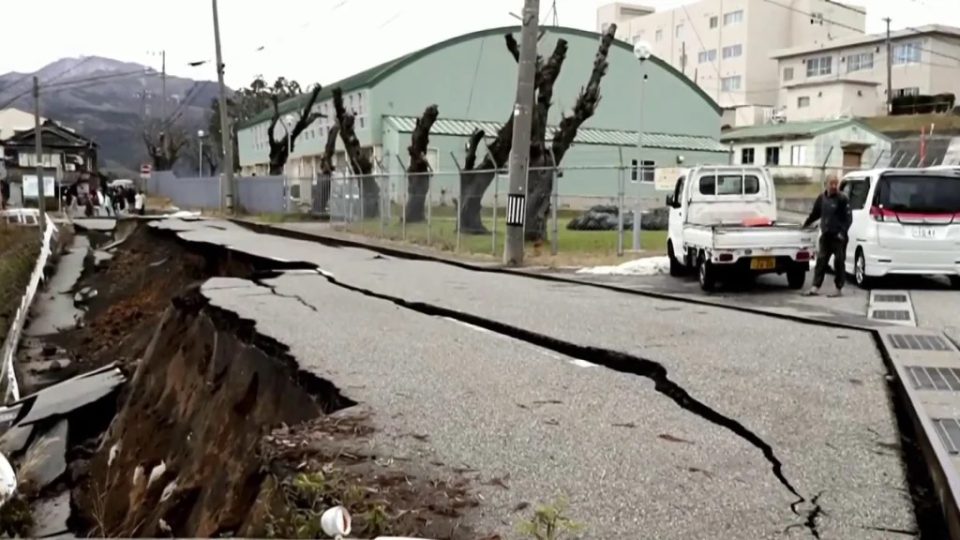In the aftermath of a devastating 7.6 magnitude earthquake and subsequent aftershocks and tsunami that struck Japan’s western coast, officials have confirmed at least 48 fatalities. Relief and rescue operations are underway, but challenges persist as badly damaged and blocked roads impede access to the worst-hit area in the Noto peninsula, Ishikawa prefecture.
The Japan Meteorological Agency reported more than 90 tremors since the initial quake on Monday and warned of the potential for additional strong shocks in the coming days. Although all tsunami advisories for areas along the Sea of Japan have been lifted, Prime Minister Fumio Kishida stressed that the search and rescue efforts are a race against time.
Thousands of rescuers are struggling to reach affected areas due to infrastructure damage, highlighting the urgent need for assistance. The situation remains critical, with citizens facing the dual threat of seismic activity and the aftermath of destructive tsunami waves.
The Indian embassy in Japan has taken swift action, establishing an emergency control room to offer support and assistance to those affected. To aid distressed Indian nationals, the embassy has provided contact numbers and email IDs, demonstrating a proactive response to the crisis.
In a televised address, Prime Minister Fumio Kishida urged citizens to adhere closely to evacuation orders and cautioned about the potential for more powerful earthquakes and tsunami waves in the aftermath of the initial disaster. The warning underscores the ongoing threat and the need for residents to prioritize their safety.
The international community has been closely monitoring the situation in Japan, expressing solidarity and offering support. As rescue operations continue, there is a growing recognition of the resilience required to address the immediate crisis and the long-term recovery efforts.
The aftermath of the earthquake and tsunami serves as a stark reminder of the unpredictable nature of natural disasters and the importance of preparedness measures. Japan, with its history of seismic activity, has implemented robust building codes and early warning systems, but the recent events emphasize the need for constant vigilance and international collaboration in disaster response.
As the nation mourns the lives lost and assesses the extensive damage, the focus remains on providing swift and effective aid to those in need. The global community stands ready to assist Japan in its recovery efforts, emphasizing the importance of solidarity and collective action in times of crisis.

